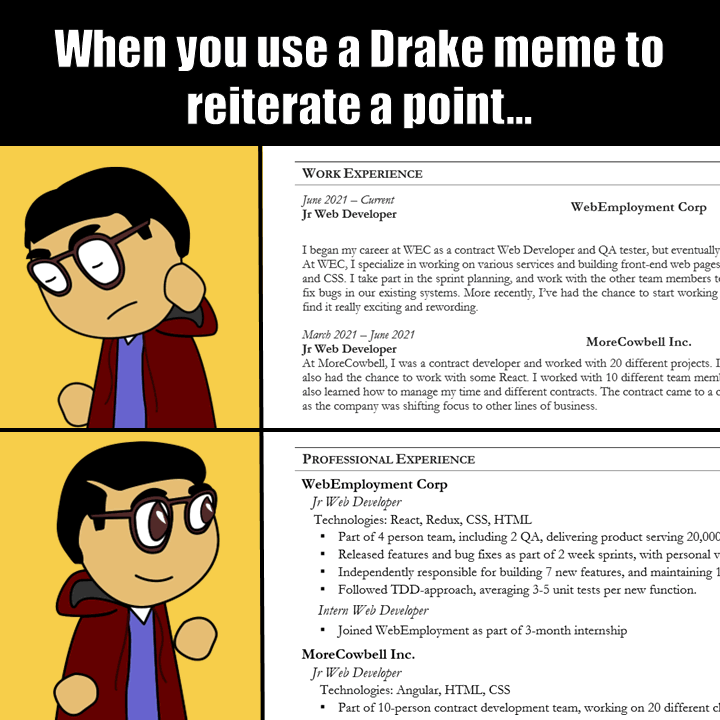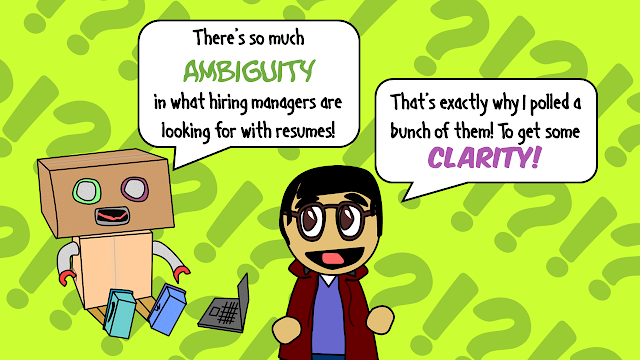How Coaching 6 Year Old Rec. Soccer Made Me a Better Product Manager
The summer/fall season of our local recreation soccer league has to a close, and I'm pretty thrilled with how well we did this season. We're not supposed to keep score, but the team of 5 & 6-year-olds I coached was nearly undefeated, with just one game slipping away from us.
I've been doing this for 6 years now, and each season has been a blast, but something was different about this season. 5 & 6-year-olds are still learning the basic rules of the game. They're still adjusting to the shock that, after a "lifetime" of being taught to share their toys, they will be given a ball and told to keep it from others. They're also easily distracted - by planes, migrating geese, dandelions, dogs. They're also, depending on any number of factors, reluctant to play.
Yet, somehow, by the time we took the field to play our first game, my team looked like veteran pros. So much so, I grew self-conscious about just how good they had become. There was such stark difference with my team and the ones we faced. We were organized, eager to play, we had core skills, strategies and (remarkably!) were ignoring the many distractions. And, of course, we scored goals. Lots of them. So many, in fact, that despite my efforts to slow my own team down by having them work on passing, skill moves, developing their left foot we were still doing well. And, throughout it all, we were having fun.
Thinking back to this past season, I thought of the things I'd done differently and the things I'd maintained from previous years. As I listed them, I realized: these things matter just as much with Product Management as they do volunteer rec-league coaching. Maybe more.
That said, here are the 5 things I learned coaching 6-year-olds, that made me a better Product Manager.
1. Develop Short-Hands that Frame The "Why"
Parents and coaches on the other team kept wondering why I'd call out "Chocolate Chip Cookie" to my team. I did it a lot.
Young kids like to chase the soccer ball. They crowd around it. Or, when theirs a stoppage and they need to take position, they'll group around each other.
One day, during practice, I'd asked them about chocolate chip cookies, and which they'd prefer to have: A chocolate chip cookie where all the chocolate chips are clustered in one spot, or one where the chips were spread out to cover more area of the cookie? They all picked the latter (well, all except one... because sometimes 5-year-olds also enjoy being a contrarian...). And we talked about how that would apply to where they stood on the field.
"Chocolate Chip Cookie" became my short-hand signal to them, to remind them of why they make space. And we had many others (I won't share, in case we ever face each other on the field 😜 ).
Why this matters: And shorthands are important in any discipline. As the wise sage and American philosopher Kevin Malone advised us: "Why waste time say lot word when few word do trick?"
The epiphany here isn't about using a shorthand to convey a more complex thing. It's all about pairing it with an easily understandable WHY.
One of my products, I refer to as the "Last Mile." If someone is confused, I explain the complexities of shipping logistics are often in the last mile. It's easy for products to move around distribution centers but getting them to someone's home is a lot harder. And our product tackles the last mile. I use this to explain the complexities of our domain, and the importance of why we do what we do.
It's become more than a shorthand, more than reminder of the why. It helps us strategize, experiment, prioritize, and keep the customer at the heart of it.
2. Trust the process, core skills will pay off in the long run.
The powers-that-be advised to focus less on footwork and individual skills and to focus more on the game itself. 6 year olds couldn't handle it, they claimed. I put that to the test: Every practice, we spent the first 5-10 minutes doing the same basic skills while we waited for the other kids to show up. We made a game of it, doing it to music, playing Simon-Says, etc. Each time they got good enough at one skill, I would add another, and another.
It didn't consume much of our practice time, and I'd encourage them to try out those skills during our practice games. By the time actual games started, my team was doing the moves with relative ease and using them in their favor. Without exaggerating parents on both teams would Ooh-and-Aah, and the other team's kids would take notice. I noticed a few try some of the moves in the middle of the game and not do too bad for their first attempt.
Why this matters: As PMs, we prioritize features, but we often don't prioritize ourselves. I see it often: getting pulled into the trap of putting out one fire after another, shifting into more of an operational role. It gets praised, and it can be gratifying - but it can burn you out.
What I don't see as much, are PMs prioritizing sharpening their fundamental and core skills: getting better at understanding the customer's problem, framing and reframing the problem, storytelling, understanding the why, being able to quantify what appears unquantifiable, thinking in terms of impact, and in terms of outcome not just output.
This is why I largely write and post as often as I do. It's practice not production. I'm trying to keep the muscle exercised in between things.
3. Put in real-world practice.
The powers-that-be also advised we spent more time doing scrimmages, to build up contextual experience. I listened to them this time.
Once the entire team had showed up, we'd go into a scrimmage. I'd divide up the team evenly and just have them play. Occasionally, I'd have them freeze if someone made a mistake. We'd analyze something that had happened and then we'd reset and try a different strategy.
I'd heard that rather than give praise like "Great job" your praise should be specific: "Great job seeing that you could pass the ball and kicking the ball that way." And so we'd pause, analyze what went well. And then we'd resume.
This would be the bulk of our practice. Just playing and having fun. Occasionally, I'd change it up by adding some new challenges: do 2 skill moves; or, do the skill move I'd call out.
Why this matters: It's perhaps less revelatory, but it's important to know the world of your customer. Someone I know was once asked if 'the customer's always right.' Their response: 'No, but their pain is real.' I think about that a lot. I think there's power in that empathetic view. It may be a customer, but it could also be a coworker, friend, spouse, neighbor. You don't have to be right for your pain to be real. Being a good friend, being a good product manager is to take that pain seriously and then help surface the cause for the pain.
Context is so important, and too often we deal with our products in non-real-world settings. Sterile and controlled environments that hide real-world problems.
I once had a product crash if a computer remained on for 30 days. 29 days, no issue. 30 days, and it would crash. It was an easy bug to fix, but not one we'd ever thought to consider. Another product was being built to require a constant and active internet connection - and we'd learned rather late that often connectivity is intermittent or non-existent.
4. Keep Score (Even If You're Not Supposed To)
The challenge of having a really strong team of young kids is they will keep score, and keep scoring. You'll remind them that, at this age, it's about having fun, building up skills, and making sure everyone on both sides loves soccer. They'll nod, and then go score another goal, do another dance, and yell to the heavens "We've scored 7 goals!!!"
You'll pull them aside and remind them of good sportsmanship and how running up the score could discourage the other players, which we don't want. And nothing sticks, until you find a new way of keeping score: Let's see who can pass the most! Let's see who can do the most skill moves! Who can use their left foot the longest?
Why this matters: Too often we only look at one score and think that's enough. Number of goals is one thing but in 6-year old rec soccer, that number can be meaningless. Goals can be scored by players running the wrong way. They can accidentally bounce in or wind up in the goal because someone kicked it awkwardly. Goals can be scored at kick-off, just by aiming at the net and toe-punting the ball hard. And none of that is a measure of the team's skill progression.
This focus on skills helped us in the long run. As the other teams improved, our core skills became second nature, and we learned new core skills in order to continue to grow. At the beginning of the game season, we scored a lot more goals then we did by the end of the season. But by the end fo the season, most of our goals were a lot more skilled and intentional.
When we think about our products, we often overemphasize the "Number of Goals Scored" (revenue earned, number of sign-ups, etc.) but we don't want to miss measuring our progression towards improvement (number of steps it takes to achieve the goal, how long it takes to navigate, the amount of downtime between steps, latency, etc.)
There's a great book that captures the power of OKRs, called Measure what Matters. OKRs are a great way of goal setting but what really solidified OKRS for me was the epiphany that you can't have a good OKR if you don't know your KPIs. As I learned, KPIs aren't good or bad. They're just measurements. You decide if the KPI is meeting your target and if it's not, then you create an OKR to get you there.
Think about your product and ask yourself what the "core skills" are that make your product good, and what keeps it competitive. Measure them. Look for ways to continue to enhance, improve and expand your core skills. Set OKRs.
5. Have an Identity.
After a nail-biting voting process, the kids picked our team's name by 1 vote. We were the Black Panthers. Leveraging a suggestion, I'd received from a grandmother in years prior, I promptly bought a stuffed animal - a black panther, that we called Pounce. Pounce was with us at every practice, and every game. At the end of each practice one player would take Pounce home and bring him back.
We also had a killer cheer. Not your typical "Gooooo Black Panthers." No. We'd crouch down low and start off quietly:
You can hear black panthers rumble:
Oooh, Ahhhh, Ooh-aah
Oooh, Ahhhh, Ooh-aah
We'd get progressively louder and louder, and be jumping up and down by the end, ending off with a large and terrifying growl.
It was silly, perhaps a little obnoxious, but it was a rallying cry. Between pounce and the cheer, we were so different from the other teams that we had a clear identity. Everyone had a turn taking Pounce home. The star player would lead off the cheer, and we'd all join in.
Why this matters: First off, it made things fun and kept things silly. This is 6-year-old rec soccer after all. But whether it's rec soccer or a product team working on a B2B product in the healthcare industry, having a clear identity matters. For morale, for building cohesion, but also because it sets a tone.
As people, we are proud of our own identities and how we represent ourselves. Our hobbies, our passions, our style - it's always on display. We pick and choose things depending on whether they fit into the narrative of our identity.
Ensuring your product has an identity helps keeps it from getting lost among the many other products out there. It's not just about branding - it's about what the brand represents, the expectations, and guarantees. If you buy an iPhone, you know that the unboxing will be a delightful experience and a simple interface. If you buy an Android, you know you'll be able to configure, alter and adjust it to meet your preferences. If you work on the iPhone, you reject complexity. If you work on an Android, you embrace complexity.
This may sound obvious - but sometimes we work on products that aren't as polarizing as the iPhone/Android. Sometimes our products don't get the same love and attention from our leadership, our peers, or our customers. Sometimes our product blends into the background. At best, this leads to just feeling like an unsung hero. At worst, it leads to team attrition, user attrition, less funding.
Be hard to ignore.
--
And that's it. I learned a lot more this season than in seasons past - but let's see what next season brings!





